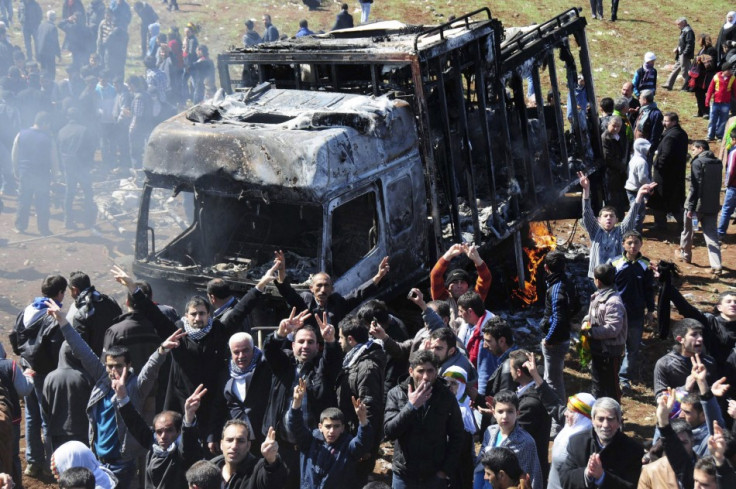Syria Backs Terrorist PKK in Snub against Turkey

Syria's embattled government has revived its support of the Kurdistan Workers' Party (PKK) in retaliation for Turkey putting pressure on President Bashar al-Assad to resign, according to a Turkish intelligence report.
Members of the separatist PKK, which is considered a terrorist organisation in Turkey, the United States and the European Union, can move freely around Syria and are allowed to bear arms as well as to launch campaigns against Ankara from inside Syria, according to a report published in the daily Hurriyet News.
Syria previously supported the PKK in the 1990s, sheltering its leader, Abdullah Ocalan, and allowing its members to train in Syrian territory. After Syria signed a bilaterally agreement with Turkey In 1999, however, all PKK activity was banned in the country.
The development follows Turkish foreign minister Ahmet Davutoğlu accusing Syria of backing the PKK and of using it as a tool to create turmoil in the country.
"Turkey is ready to discuss every option in order to protect its national security," Davutoğlu said, adding that Turkish security forces are monitoring a number of PKK groups entering the country from Syria and will not allow itself to be undermined.
Despite recurrent reports that the PKK has been assisting the Syrian regime, the party has denied helping either Assad or his army.
"The PKK is not a tool in the hand of any country in the world to make it take up arms for it. It is a fully independent party in its decisions and its only loyalty is to the Kurdish people. It is seeking to achieve its people's national demands through its persistent struggle and, therefore, its arms are for defending its legitimate national cause and not for rent to defend repressive and despotic regimes, such as that of the Syrian one under Bashar al-Assad," the group said when the issue rose in a statement in November.
"We will not defend this tyrannical bloody regime under any circumstances. We add our voice to the voices coming from all over the world in calling on the Syrian regime to stop killing the civilians, abandon the repression and violence, and open the way before the people to express their free will in a peaceful way," PKK spokesman Karawan Azardi told the Arabic publication Asharq Al-Awsat at the time.
Following Ocalan's arrest by Turkish security forces in 1999, Muray Karayilan took over as acting leader of the organisation. In response to Turkey applying pressure on Assad to step down, he threatened to turn all Kurdish populated areas into a "war zone" if Turkish military forces intervene in Syria.
"The Turkish state is planning an intervention against our people," the Europe-based Fırat news agency quoted Karayila as saying.
"If the Turkish state intervenes against our people in western Kurdistan, all of Kurdistan will turn into a war zone."
Turkish Prime Minister Recep Tayyip Erdoğan recently called on Turkish citizens of Kurdish origin to boycott the Peace and Democracy Party (BDP), which is viewed as the Kurdish movement's political wing in the country.
The prime minister rejected criticism over the authorities banning celebrations ahead of the spring festival of Nowruz on the grounds of intelligence.
In addition to being Turkey's largest minority group, Kurds are the dominant ethnic group in the southeastern part of the country and account for almost 20 percent of the country's entire population.
Turkey has failed to defeat the PKK in 27 years of fighting in a conflict that has claimed more than 40,000 lives.
© Copyright IBTimes 2025. All rights reserved.





















